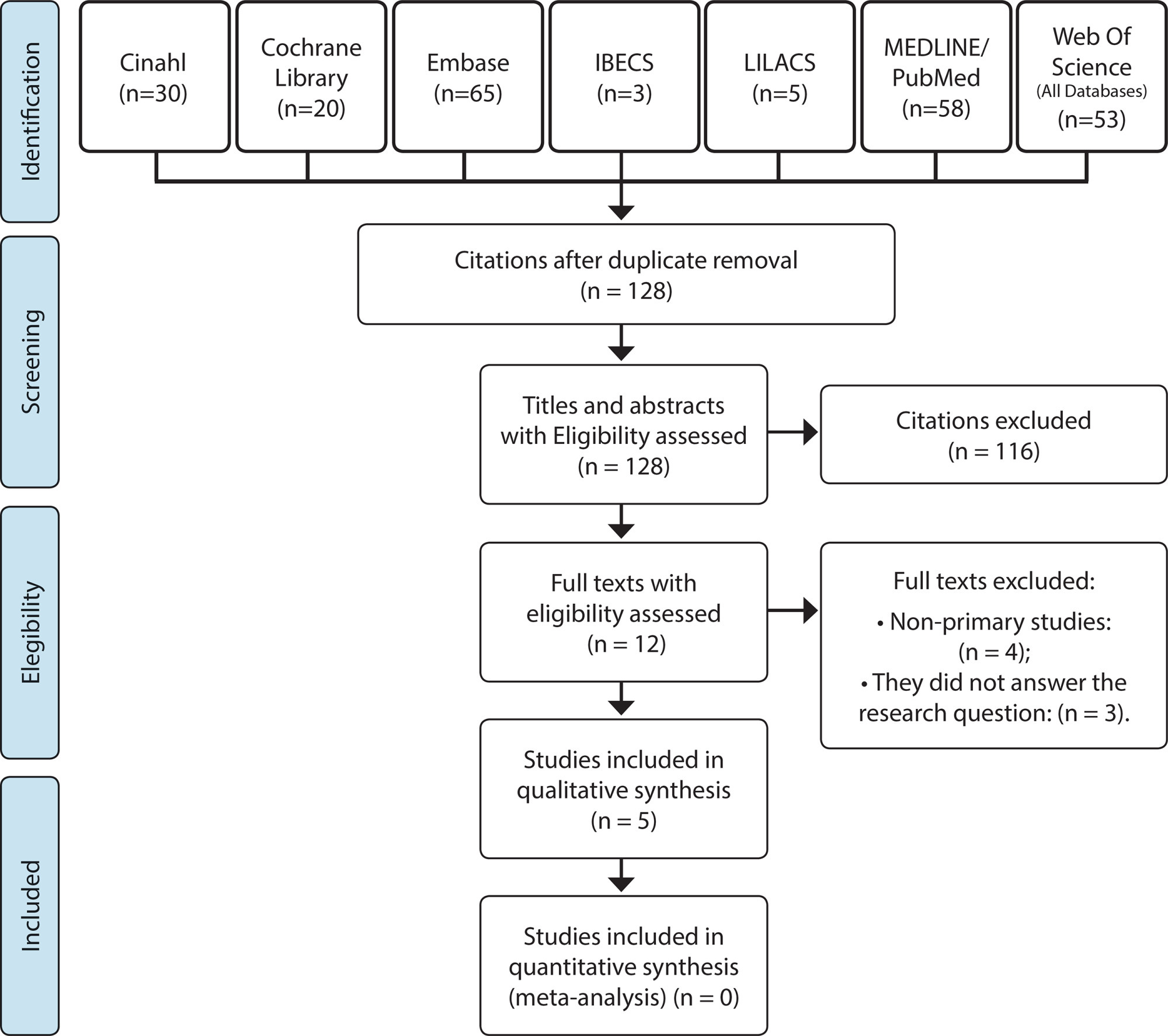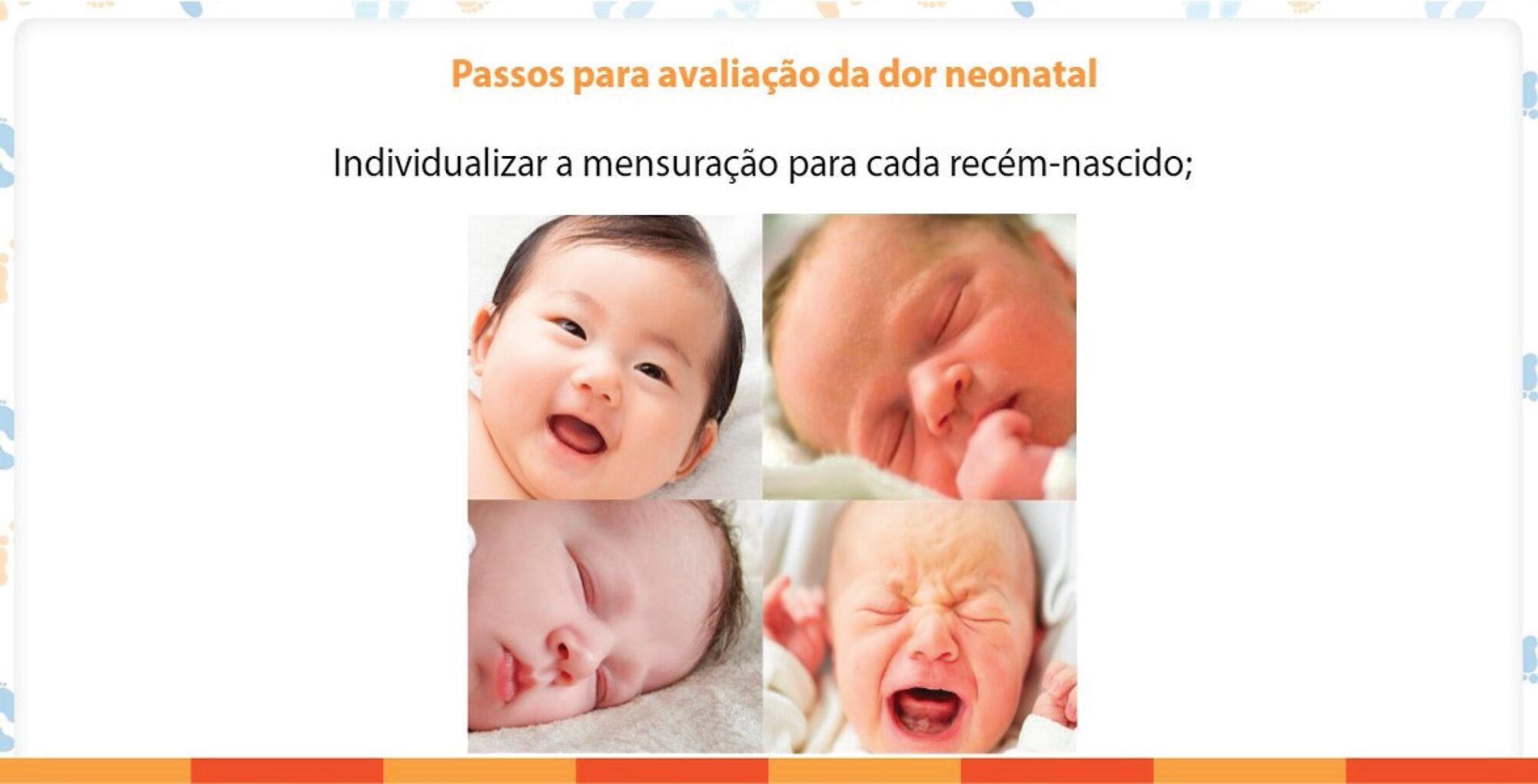-
RESEARCH01-01-2018
Educational technology for people living with HIV: validation study
Revista Brasileira de Enfermagem. 2018;71:1657-1662
Abstract
RESEARCHEducational technology for people living with HIV: validation study
Revista Brasileira de Enfermagem. 2018;71:1657-1662
DOI 10.1590/0034-7167-2017-0824
Views0See moreABSTRACT
Objective:
to validate an educational technology to support the action of health professionals with people living with HIV.
Method:
methodological study with data collection using a four-point Likert scale for evaluation by eleven judges and 51 people living with HIV. The data were tabulated, processed, and analyzed by inferential and descriptive statistics, Cronbach’s alpha test, and Kruskal-Wallis for reliability and internal consistency analyses.
Result:
the Cronbach’s alpha was 0.974 for judges and 0.694 for the target audience, reliable values. Kruskal-Wallis tested hypotheses H0 and H1 with significance of 0.05. H0 was accepted with significance of 0.395 for judges and 0.187 for the target audience, demonstrating agreement on the distribution of answers. Judgements with favorable response of at least 70% were considered relevant, according to the performed tests.
Conclusion:
the technology presents high reliability and good internal consistency, being deemed appropriate.
-
RESEARCH01-01-2018
Teaching strategies: promoting the development of moral competence in undergraduate students
Revista Brasileira de Enfermagem. 2018;71:1650-1656
Abstract
RESEARCHTeaching strategies: promoting the development of moral competence in undergraduate students
Revista Brasileira de Enfermagem. 2018;71:1650-1656
DOI 10.1590/0034-7167-2017-0704
Views0See moreABSTRACT
Objective:
To identify strategies and spaces used by professors to promote the development of the moral competence of nursing undergraduate students.
Method:
Qualitative research, developed with 20 nursing professors, through a semi-structured interview, from July to October 2016. Data were submitted to discursive textual analysis.
Results:
Three categories were constructed: Active methodologies as strategies for the development of moral competence; Knowledge and development of clinical reasoning as motivating spaces of moral competence; Attitude of professors as a strategy for dialogue, empathy, recovery of moral values and development of caring skills.
Final considerations:
The use of strategies and spaces to develop pedagogical actions favors the search for knowledge, clinical reasoning and the approach of ethical and moral aspects that collaborate for the development of the moral competence of nursing undergraduate students.
-
RESEARCH01-01-2018
Quality of life and eating attitudes of health care students
Revista Brasileira de Enfermagem. 2018;71:1642-1649
Abstract
RESEARCHQuality of life and eating attitudes of health care students
Revista Brasileira de Enfermagem. 2018;71:1642-1649
DOI 10.1590/0034-7167-2017-0224
Views0See moreABSTRACT
Objective:
To assess the quality of life and eating attitudes of health care students of the undergraduate programs of a public university.
Method:
Observational, cross-sectional, and quantitative study performed in a federal university. Three questionnaires were used for data collection: a socio-demographic and academic, the WHOQOL-BREF and the Eating Attitudes Test (EAT-26).
Result:
399 students participated in this study, most women, average age of 22 years, average scores of EAT-26 of 15.12 and quality-of-life averages above 60 points in all domains. The students of the undergraduate program in Nutrition presented more inappropriate eating attitudes than other health care students; as the age evolves, vulnerability to inadequate eating attitudes increases; and the family income influenced negatively the quality of life in Physical and Social domains.
Conclusions:
Inadequate eating attitude diminishes the quality of life of health care students in all domains of the WHOOQOL-BREF.
-
RESEARCH01-01-2018
Construction and validation of an Educational Content Validation Instrument in Health
Revista Brasileira de Enfermagem. 2018;71:1635-1641
Abstract
RESEARCHConstruction and validation of an Educational Content Validation Instrument in Health
Revista Brasileira de Enfermagem. 2018;71:1635-1641
DOI 10.1590/0034-7167-2017-0648
Views0See moreABSTRACT
Objective:
to construct and validate the Educational Content Validation Instrument in Health.
Method:
methodological study that includes the establishment of the conceptual structure; definition of objectives and population; construction of items and response scale; selection and arrangement of items; instrument structuring; opinion of experts; pre-test and content validation.
Results:
an instrument with 15 items was constructed and, after expert evaluation, eighteen items were obtained, divided into three domains: objectives (four), structure/presentation (nine), and relevance (two). Six items were modified since they presented a percentage of agreement below 0.8. Items of the total instrument presented good internal consistency (0.877) regarding domains.
Conclusion:
an Educational Content Validation Instrument in Health was elaborated and validated, presenting good reliability, and may contribute to the practice of researchers and health professionals in the development of educational content.
-
RESEARCH01-01-2018
Teaching of infection control in undergraduate courses in health sciences: opinion of experts
Revista Brasileira de Enfermagem. 2018;71:1626-1634
Abstract
RESEARCHTeaching of infection control in undergraduate courses in health sciences: opinion of experts
Revista Brasileira de Enfermagem. 2018;71:1626-1634
DOI 10.1590/0034-7167-2017-0928
Views0See moreABSTRACT
Objective:
To know the perception of expert professionals in infection control and prevention on the teaching of skills for the prevention and control of infections related to health care in undergraduate courses in Health Sciences.
Method:
We used the Delphi technique, developed in four sequential rounds. Thirty-one nurses and eight physicians participated in the study. Qualitative data were analyzed through content analysis; the quantitative ones, from the descriptive statistics.
Results:
The importance of the courses has had teachers with expertise in infection control and prevention added to arguments about the development of the subject in the curricula by means of a specific subject or as a transversal theme.
Conclusions:
In order to cover the complexity of the elements that are interconnected for professional training, teaching must be based on pedagogical strategies that provoke reflection in students, encouraging them to develop critical thinking about their experiences.
-
RESEARCH01-01-2018
Nursing international student mobility in the University of São Paulo
Revista Brasileira de Enfermagem. 2018;71:1619-1625
Abstract
RESEARCHNursing international student mobility in the University of São Paulo
Revista Brasileira de Enfermagem. 2018;71:1619-1625
DOI 10.1590/0034-7167-2017-0754
Views1See moreABSTRACT
Objective:
To characterize the experiences of undergraduate students of the School of Nursing of the University of São Paulo (EEUSP) who participated in international mobility programs between January 2011 and July 2017.
Method:
Exploratory, descriptive study with quantitative approach. Of 68 reports, only 38 (56%) were considered valid and were submitted to descriptive statistical analysis. Data were categorized in general, institutional, academic and cultural aspects and cost of living.
Results:
The main destination was Portugal and the years with most participation were 2012 and 2013. The mean stay was six months and the students took a mean of three to four courses. The main funder was the university of origin.
Conclusion:
Academic activities were limited to theoretical and practical courses, with little insertion in research. There is a need to increase investment in learning other languages and to expand partnerships with larger centers of foreign education and research.
-
RESEARCH01-01-2018
Training in diabetes education: meanings attributed by primary care nurses
Revista Brasileira de Enfermagem. 2018;71:1611-1618
Abstract
RESEARCHTraining in diabetes education: meanings attributed by primary care nurses
Revista Brasileira de Enfermagem. 2018;71:1611-1618
DOI 10.1590/0034-7167-2017-0792
Views1See moreABSTRACT
Objective:
seize meanings attributed by primary care nurses to training in diabetes education.
Method:
exploratory and descriptive study, with a qualitative approach, with twenty primary care nurses; semistructured interview script, with interviews processed in the IRaMuTeQ software and analyzed through the Descending Hierarchical Classification. The results were subsidized in the Representational Theory of Meaning.
Results:
nurse training in diabetes education is insufficient for holistic action, although it allows the community to be instrumentalized in specific issues about the disease, using the limited tools available, especially lectures. Nurses find themselves in a context of challenges, improvisations, weaknesses, and limitations that determine the meaning attributed to diabetes education and subsequent actions.
Conclusion:
the meanings attributed by the nurses revealed an incipient training, which limits the quality of care provided and instigates the search for qualification.

-
RESEARCH01-01-2018
Educational animation about home care with premature newborn infants
Revista Brasileira de Enfermagem. 2018;71:1604-1610
Abstract
RESEARCHEducational animation about home care with premature newborn infants
Revista Brasileira de Enfermagem. 2018;71:1604-1610
DOI 10.1590/0034-7167-2017-0401
Views0See moreABSTRACT
Objective:
to elaborate and validate animation on the care of premature newborn infants at home.
Method:
Methodological study in three stages: integrative review on home care; animation design based on Roper, Logan and Tierney’s Model named “Activities of Living” (ALs), and validation of content and appearance by neonatology specialists. The steps to develop the animation were: creation of storyboard; definition of objects; specification of keyframes; and frame generation among key frameworks.
Results:
Of the 53 articles selected in the review, care was extracted and grouped into the twelve activities of living. Three storyboards were created to embrace all care and validated by 22 experts. Most of the care had matches above 80%.
Conclusion:
The validation of the storyboards made it possible to glimpse the changes in scenes and dialogues in a clearer and more detailed way. Animation is an innovative educational technology to support teaching and learning of parents and family.

-
REVIEW10-19-2020
Effectiveness of skin protectors and calendula officinalis for prevention and treatment of radiodermatitis: an integrative review
Revista Brasileira de Enfermagem. 2020;73:e20190815
Abstract
REVIEWEffectiveness of skin protectors and calendula officinalis for prevention and treatment of radiodermatitis: an integrative review
Revista Brasileira de Enfermagem. 2020;73:e20190815
DOI 10.1590/0034-7167-2019-0815
Views0See moreABSTRACT
Objective:
to analyze the effectiveness of skin protectors and Calendula officinalis for prevention and treatment of radiodermatitis.
Method:
an integrative review conducted at CINAHL, Cochrane Library, Embase, MEDLINE/PubMed, IBECS, LILACS, and Web of Science. The final sample consisted of five studies, four clinical studies and one preclinical. Critical appreciation and narrative synthesis of the findings were carried out.
Results:
the Cavilon™ skin protector was more effective than Sorbolene (cream with 10% glycerin) and less effective than Mometasone Furoate cream. Calendula officinalis was more effective than Trolamine and essential fatty acids and less effective than Ching Wan Hung® for prevention and treatment of radiodermatitis.
Conclusion:
data confirm the potential of Calendula officinalis for prevention and treatment of radiodermatitis and point to promising results regarding skin protector use; however, there is a need for further testing as to the effectiveness of such products.

-
ORIGINAL ARTICLE05-18-2020
Expert assessment of the “Neonatal Pain Assessment Program” online course
Revista Brasileira de Enfermagem. 2020;73(4):e20180392
Abstract
ORIGINAL ARTICLEExpert assessment of the “Neonatal Pain Assessment Program” online course
Revista Brasileira de Enfermagem. 2020;73(4):e20180392
DOI 10.1590/0034-7167-2018-0392
Views0See moreABSTRACT
Objectives:
to assess layout quality, visual identity and content of the “Neonatal Pain Assessment Program” (Programa de Avaliação da Dor Neonatal) online course.
Methods:
a descriptive exploratory study. The course was assessed by 24 experts in pain, neonatology and education. A form containing 20 questions on technical, interface and educational aspects was used. For each item, the score ranged from 0 to 1. Mean scores above 0.7 were considered indicative of high quality of the items. Descriptive statistics were used for data analysis.
Results:
navigation, clarity, ease of localization, content relevance, contextualization, content correction, multiple windows, ease of use, ease of return, ergonomics, esthetics, special brands, audiovisual resources, information and portability were assessed. All aspects obtained a mean ≥ 0.70 and no changes were required.
Conclusions:
the Neonatal Pain Assessment Program is considered as quality educational technology and promising strategy for health education.

-
01-22-2021
Humanization practices in the parturitive course from the perspective of puerperae and nurse-midwives
Revista Brasileira de Enfermagem. 2021;74:e20190743
Abstract
Humanization practices in the parturitive course from the perspective of puerperae and nurse-midwives
Revista Brasileira de Enfermagem. 2021;74:e20190743
DOI 10.1590/0034-7167-2019-0743
Views1See moreABSTRACT
Objective:
to understand humanization practices in the parturitive course from the point of view of purperae and nurse-midwives.
Methods:
an exploratory, descriptive, qualitative research carried out in a maternity hospital in Bahia State. Semi-structured interviews were carried out, with a structured script applied to 11 mothers and 5 nurse-midwives from March to June 2019. Analysis followed Bardin’s content structure.
Results:
this study unveiled the importance of using soft care technologies, respect for female role, active participation and women’s autonomy as a positive impact on the parturition process.
Final considerations:
nurse-midwives are qualified professionals to assist women in labor and birth. They can favor the implantation and implementation of care with humanization practices, respect for women’s choices and incentive to the normal way of delivery with an expanded view of individual and multidisciplinary needs.
-
REVIEW12-05-2019
Health promotion of frail elderly individuals and at risk of frailty
Revista Brasileira de Enfermagem. 2019;72:319-327
Abstract
REVIEWHealth promotion of frail elderly individuals and at risk of frailty
Revista Brasileira de Enfermagem. 2019;72:319-327
DOI 10.1590/0034-7167-2018-0575
Views0See moreABSTRACT
Objective:
To identify interventions for the health promotion of frail elderly individuals and those at risk of frailty.
Method:
Integrative review of the literature performed in the following databases: LILACS, CINAHL, MEDLINE, Web of Science, COCHRANE and Scopus, using the
Descriptors:
“frail elderly”, “aging”, “health services for the aged” and “health promotion” combined with Boolean operators “AND” and “OR”.
Results:
Randomized controlled clinical trials (RCTs) classified as level of evidence II represented 82.6% of studies. Interventions were analyzed according to the following categories: Interventions for the elderly at risk of frailty and Interventions for the frail elderly.
Conclusion:
The following interventions were identified: educational multiprofessional group meetings, physical training, home visit/home care program, nutrition assessment and supplementation, health maintenance programs and cognitive training; models/programs of management and monitoring, use of assistive technology devices and hospitalization program for geriatric rehabilitation.

-
ORIGINAL ARTICLE09-16-2019
Analysis of compliance to antiretroviral treatment among patients with HIV/AIDS
Revista Brasileira de Enfermagem. 2019;72(5):1295-1303
Abstract
ORIGINAL ARTICLEAnalysis of compliance to antiretroviral treatment among patients with HIV/AIDS
Revista Brasileira de Enfermagem. 2019;72(5):1295-1303
DOI 10.1590/0034-7167-2018-0115
Views1See moreABSTRACT
Objective:
To analyze the compliance to antiretroviral therapy among HIV/AIDS patients.
Method:
99 HIV-positive volunteers undergoing treatment responded to a semi-structured sociodemographic interview and to a questionnaire that assessed compliance to antiretroviral treatment.
Results:
In the sample analyzed, 52.5% of the volunteers presented good/adequate treatment compliance, while 33.3% presented low/insufficient compliance. There was no significant difference between men and women in the questionnaire score, nor between groups with different levels of education.
Conclusion:
The main items of the questionnaire that contributed to good/adequate compliance were: positive impact of treatment on health and quality of life, few side effects after initiation of therapy, and positive self-evaluation of participants regarding their compliance to antiretroviral therapy. The main barriers detected for compliance to antiretroviral therapy were the lack of knowledge about current medications and the lack of information on antiretroviral therapy drugs.
-
03-15-2021
Advanced Practice Nursing in Latin America and the Caribbean: seeking its implementation
Revista Brasileira de Enfermagem. 2021;74:e74suppl601
Abstract
Advanced Practice Nursing in Latin America and the Caribbean: seeking its implementation
Revista Brasileira de Enfermagem. 2021;74:e74suppl601
DOI 10.1590/0034-7167.202174suppl601
Views1Healthcare organizations are increasingly complex and specialized, seeking to optimize their quality and safety standards, and be able to meet the growing needs of their users. To face this reality, health professionals need to adapt to respond in time to the demands of the health context. In turn, the World Health Organization (WHO), through the […]See more -
ORIGINAL ARTICLE12-05-2019
Evaluation of delirium in aged patients assisted at emergency hospital service
Revista Brasileira de Enfermagem. 2019;72:153-160
Abstract
ORIGINAL ARTICLEEvaluation of delirium in aged patients assisted at emergency hospital service
Revista Brasileira de Enfermagem. 2019;72:153-160
DOI 10.1590/0034-7167-2018-0386
Views0See moreABSTRACT
Objective:
identify the occurrence of delirium in aged patients assisted in emergency services and verify its relationship with sociodemographic and clinical variables.
Method:
cross-sectional, prospective study with a quantitative approach. Two hundred aged hospitalized patients participated. The Confusion Assessment Method was used for data collection. For statistical analysis, chi-square tests, likelihood ratio and Fisher’s test were used, with a significance level of 5%.
Results:
male gender and mean age of 71.8 years were predominant. In the first 24 hours of hospitalization, 56 (28%) aged individuals presented delirium. An association of the disease with lack of physical activity, presence of a caregiver, hypertension, dyslipidemia and cerebrovascular diseases was identified.
Conclusion:
Delirium was associated with no physical activity, the need of a caregiver, and the presence of comorbidities. The importance of conducting other studies that may lead to early identification of the condition to prevent its complications is emphasized.
-
ORIGINAL ARTICLE04-22-2020
Men’s health care: construction and validation of a tool for nursing consultation
Revista Brasileira de Enfermagem. 2020;73(3):e20190013
Abstract
ORIGINAL ARTICLEMen’s health care: construction and validation of a tool for nursing consultation
Revista Brasileira de Enfermagem. 2020;73(3):e20190013
DOI 10.1590/0034-7167-2019-0013
Views0See moreABSTRACT
Objectives:
to elaborate and validate a data collection tool for nursing consultation with men in the context of Primary Health Care.
Method:
a methodological study developed in four stages. The first one consisted in tool elaboration, using databases and the Dorothea Orem’s theoretical model. In the second and third stages, content validation and tool appearance by 23 nurse judges took place. The Concordance Index was used for assessment. In the fourth stage, a pilot test was carried out with 20 men using Primary Health Care.
Results:
of the 145 indicators prepared, organized and submitted to validation process, items with the Concordance Index <0.80 were excluded. The final tool consisted of 156 items. An overall 0.88 Concordance Index calculation was obtained.
Conclusions:
the final tool presented content validity for data collection with men in Primary Health Care.
Search
Search in:
Nuvem de Tags
Adolescente (85) Atenção Primária à Saúde (239) COVID-19 (91) Criança (91) Cuidados de Enfermagem (269) Educação em Enfermagem (151) Educação em Saúde (139) Enfermagem (930) Enfermagem Pediátrica (86) Estudantes de Enfermagem (77) Estudos de Validação (131) Família (87) Idoso (208) Promoção da Saúde (99) Qualidade de Vida (104) Saúde do Trabalhador (86) Saúde Mental (145) Saúde Pública (82) Segurança do Paciente (150) Tecnologia Educacional (100)



